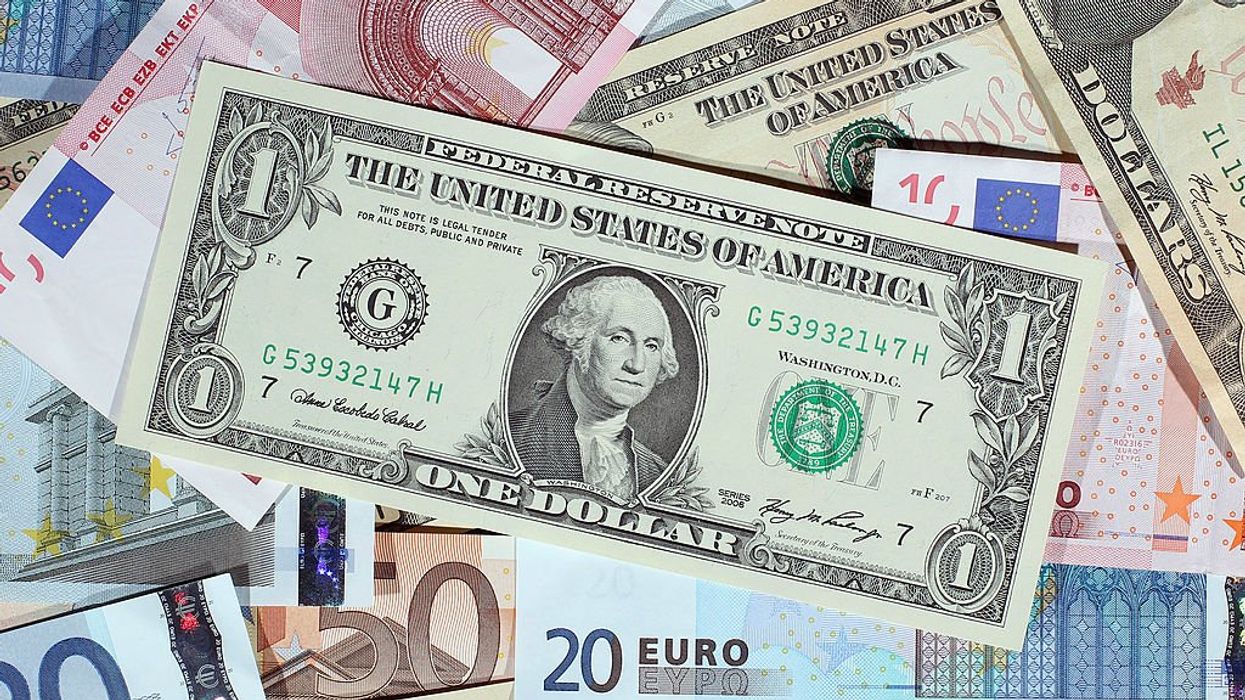
Photo illustration by Dan Kitwood/Getty Images

A new study released Wednesday by the think tank Atlantic Council found that 130 countries, representing 98% of the global GDP, are considering central bank digital currencies, with 49% currently in advanced development.
A central bank digital currency is a digital form of a country's current fiat currency. Instead of printing cash, central banks would issue electronic money.
Critics of this system have expressed concern that it puts too much power in the hands of government officials, who would have the ability to stop transactions and turn off citizens' access to their own wallets. Additionally, all transactions would be traceable.
The number of nations exploring digital currency has increased significantly since May 2020, when only 35 countries were considering the option.
"A new high of 64 countries are in an advanced phase of exploration (development, pilot, or launch)," the study read.
Eleven nations, including the Bahamas, Jamaica, Saint Lucia, Grenada, and Nigeria, have already launched digital currencies.
Another 21 countries are currently piloting a CBDC system, including Sweden, Singapore, Ukraine, Turkey, Iran, and South Africa.
The study found that Russia, Thailand, and Australia plan to continue testing their pilot programs through 2023, while India and Brazil plan to launch in 2024.
China's pilot CBDC is already being utilized by 260 million individuals who are testing the digital currency on public transit, stimulus payments, and e-commerce purchases, the study stated.
Digital currencies are in development in 32 countries, including the United States, Canada, Mexico, the United Kingdom, Brazil, and Norway.
Biden administration officials have previously expressed interest in developing a digital currency, including Treasury Secretary Janet Yellen, who stated, "I think it [the digital dollar] could result in faster, safer, and cheaper payments, which I think are important goals."
Meanwhile, the Federal Reserve Banks are "pursuing CBDC prototypes for both wholesale and retail applications," the study noted. It added that the U.S. is "moving forward" with wholesale CBDC, while retail CBDC has "stalled." Wholesale CBDC is used in bank-to-bank transactions, while retail CBDC would be available to the general public.
Another 45 nations are researching the possibility of switching to a digital currency.
"19 of the G20 countries are now in the advanced stage of CBDC development," the study stated, excluding Argentina. "Nearly every G20 country has made significant progress and invested new resources in these projects over the past six months."
Two countries, Senegal and Ecuador, which previously explored adopting digital currencies, have since decided to cancel their developments.
Like Blaze News? Bypass the censors, sign up for our newsletters, and get stories like this direct to your inbox. Sign up here!